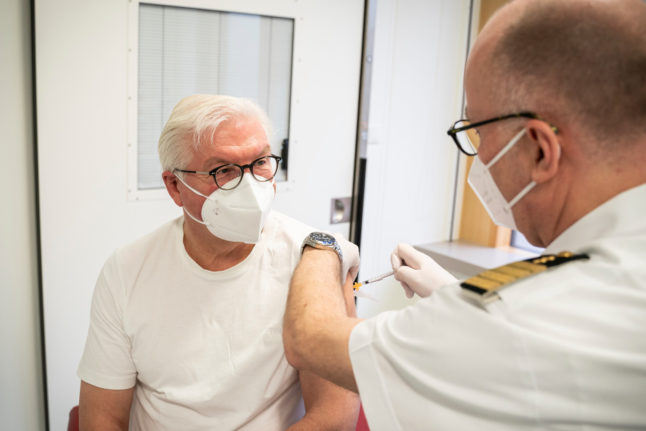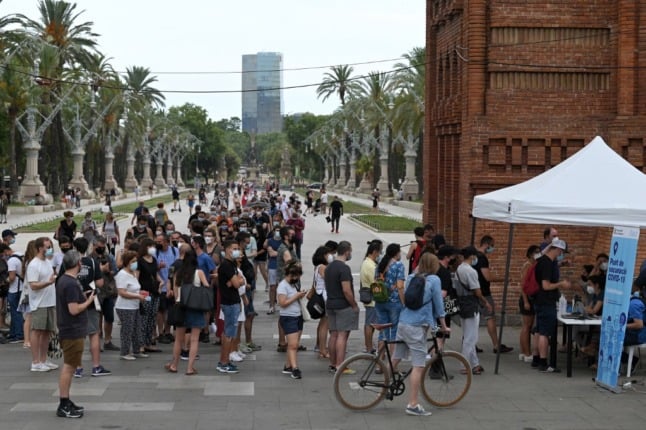“I trust the vaccines authorised in Germany,” Steinmeier, 65, said in a statement after getting inoculated at Berlin’s Military Hospital.
“Vaccinating is the decisive step on the path out of the pandemic. Use the opportunities available. Join in!” he added.
German officials have been at pains to shore up public confidence in AstraZeneca’s vaccine, which has been on a rollercoaster ride in Europe.
Germany’s STIKO vaccine commission on Tuesday said it recommended use of the jab only for people 60 and older following concerns over several blood clotting cases among younger recipients of the vaccine.
People under the age of 60 can still take AstraZeneca in consultation with their doctor and if they are fully aware of the potential risks.
READ ALSO: EXPLAINED: Why has Germany restricted the use of AstraZeneca in under 60s?
German Health Minister Jens Spahn, who is 40 years old, told reporters Thursday that he would be willing to take AstraZeneca “when it’s my turn”.
Chancellor Angela Merkel has also said she is up for the Anglo-Swedish company’s vaccine when it is her turn.
Efforts to talk up the jab’s effectiveness among elderly people were undermined by 71-year-old Interior Minister Horst Seehofer, who told the topselling Bild daily he had no plans to take AstraZeneca.
“The answer to Jens Spahn’s appeal (to the elderly) is no,” Seehofer said, adding that he had nothing against AstraZeneca but didn’t want to be “patronised”.
Several other countries, including France, Spain and Canada, have also imposed age limits on the AstraZeneca shot over the occurrence of rare but very severe blood clots.
The European Medicines Agency on Wednesday said experts probing links between AstraZeneca’s vaccine and the rare reports of clotting have found no specific risk factors, but are investigating further.
The World Health Organization has also said that the AstraZeneca shot is safe.
READ ALSO: AstraZeneca vaccine ‘safe and effective’ against Covid-19, European Medical Agency concludes



 Please whitelist us to continue reading.
Please whitelist us to continue reading.
Member comments